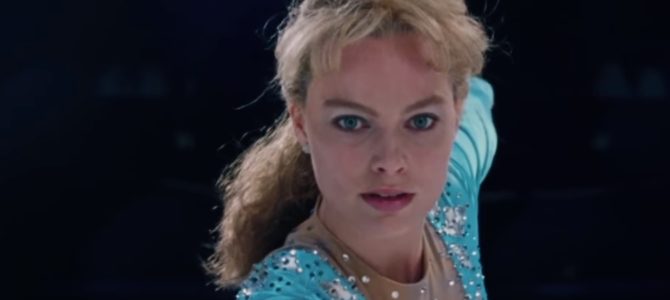
It is hard to believe that 24 years have elapsed since the attack on Nancy Kerrigan’s knee dominated the news cycle. We watched every day as the story unfolded, revealing increasingly unbelievable, but true, parts of an insane conspiracy. At the time, any given person in America could have told you the names and details of all involved in the attack and the likelihood of Kerrigan’s recovery in time for the Olympic games in Lillehammer.
Since then, most of the details have been forgotten, replaced in our collective mind by their bare bones. Tonya Harding attacked Nancy Kerrigan’s knee, Tonya was trashy, she cried at the Olympics, and we haven’t heard much from her since then.
In 2014, Nanette Burstein made a documentary for the ESPN film series “30 for 30,” titled “The Price of Gold.” It told a story none of us remembered. It was the story of Tonya Harding, abused American girl who overcame so many odds to make it to the Olympics, where no one wanted her.
In ’94, we all had a good laugh judging this girl who was dominating the news. She had impossibly stupid friends, and a very bad perm. She didn’t look the part, and it was so easy to make fun of her. But as we learned in the “Price of Gold,” she wasn’t a goofy, recurring character on “Saturday Night Live”—she was a real person. She was a woman who couldn’t always afford dinner, and who would go home from skate practice and get punched in the face by her husband.
A Reversal of Sentiment
This winter, “I, Tonya” was released to critical acclaim. Screenwriter Craig Gillespie pens a humorous and touching account of Harding’s personal life, with “the incident” and subsequent fallout serving as the film’s climax, but not the whole story. Margot Robbie portrays a version of the former figure skater that expects the audience’s allegiance, and deserves it.
Whether Harding was involved in the attack is neither confirmed nor denied in the documentary or movie, and it isn’t of particular interest to the viewer. There is no argument that she wasn’t always making the best decisions, and was susceptible to bad people.
Harding, now married with a young son, is finally getting a moment of redemption. She deserves it. I cannot imagine the nightmare of having my dreams destroyed in the most public way possible, then being forced to disappear, constantly wary of the next person looking to take advantage of me.
I judged Harding back in 1994. I didn’t hate her, I didn’t wish her ill, but I looked at this seemingly trashy girl, saw all the other shiny figure skaters around her, and thought she seemed hilariously out of place. After years of living my own life as a woman in America, complete with very bad choices and a lot of help from loved ones, I deeply regret choosing to judge Tonya for a story I only knew from TV.
What Equal Opportunity Requires From Us
Today, I can appreciate not only her stamina and confidence in the face of adversity, but also her incredible athleticism. In 1991, Harding became the first American woman to successfully complete a triple axel in competition, and went on to win the U.S. Championship. Despite the figure skating world cumulatively agreeing that she was not the ideal representative of the sport, her talent and tenacity demanded global attention. She made it to the mainstage on pure talent.
The triple axel became such a poignant moment in the movie, showing a modern-day Tonya reflecting on the accomplishment, and through teary eyes, saying to the camera “No one really asks me about that anymore.”
We ask for equal opportunities for everyone in America, but we need to remember to give equal opportunities too. As a record-breaking athlete, Harding should not have had to fight for her right to stay in competition. She should have been embraced by the public for being the most talented, not laughed out of the arena for having a cheap costume.
Maybe the knee-bashing incident would have been avoided if Tonya got a few sponsorships, a little confidence from the media, and the ability to walk away from her husband and his group of goons long before they hatched their plan.
Last Sunday, I saw Harding sitting with the cast and crew of “I, Tonya” at the Golden Globes, and it brought a tear to my eye. Knowing that she was a victim of profound abuse, stripped of a lifetime of access to skating, and had spent years of her life walking the earth as a punch line, it’s right that she finally gets to enjoy a moment in the sun.
The documentary and the feature film show us a Tonya Harding who represents the American Dream. She came from nothing, was told she was nothing by the people closest to her, and somehow succeeded anyway—but without a Hollywood ending. Because of her redemption story, today I’m giving Tonya a cheer.









